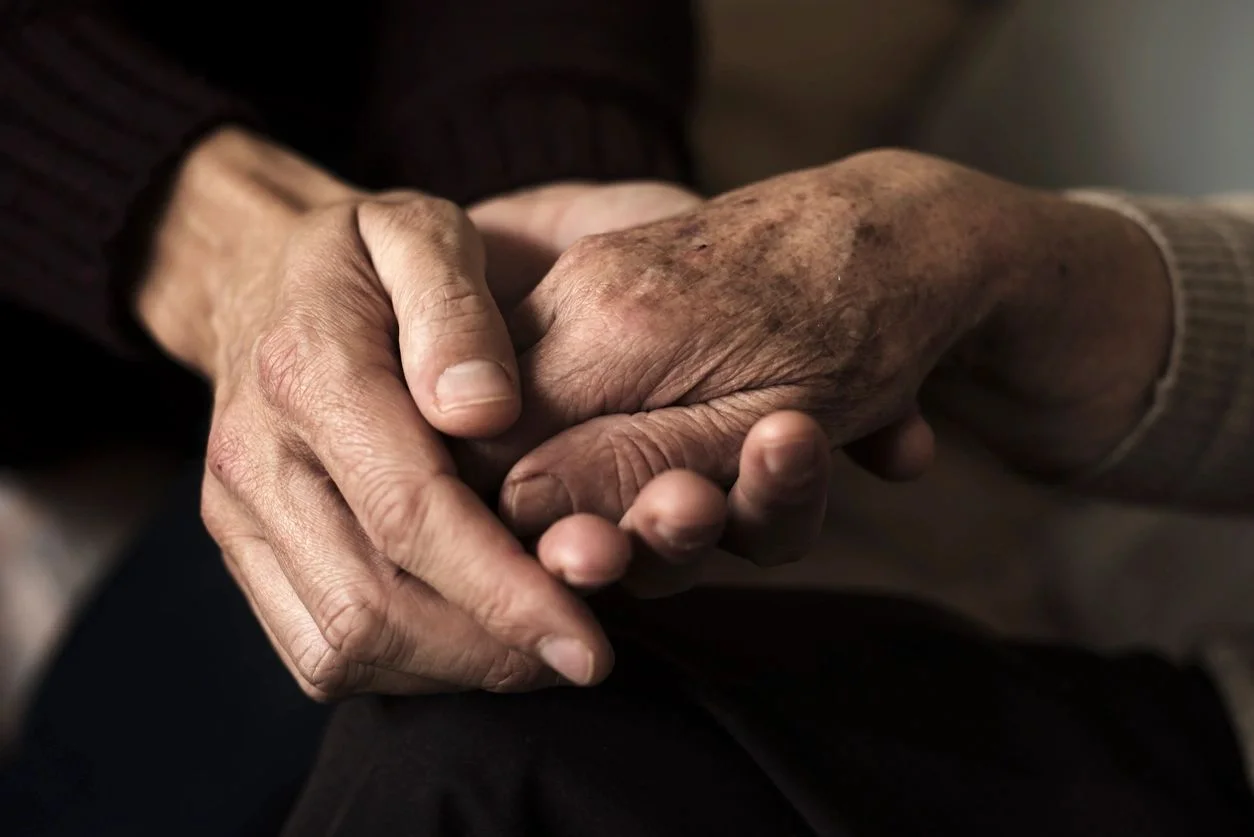
Navigating Grief: Healing Through Loss
By Lauren Godfrey
Grieving the loss of someone or something important in your life can feel like a heavy, never-ending journey. The emotions—sadness, anger, confusion—can feel all-consuming, and it's natural to wonder if the pain will ever ease. But here's the thing: healing through grief doesn't mean you'll forget or "move on" in the way we often expect. It's about learning to live with the loss, finding new ways to cope, and giving yourself the grace to heal at your own pace. In this post, I'll share practical ways to navigate the grief process—whether you're mourning a recent loss or working through something that's been with you for a while. Remember, you're not alone. With time, care, and the proper support, healing is possible.
What Grief Can Look Like
Grief can show up in many unexpected ways, not just when we lose someone we love. It may come when a relationship ends, a job that once brought you joy slips away, or you must let go of a long-held dream. Sometimes, grief sneaks up on us when we experience sudden changes—like a shift in family dynamics, losing your sense of security, or feeling isolated. It can even happen when you mourn the person you used to be due to illness, aging, or the passage of time. Grief isn't always about one apparent loss; it's about anything that shifts your world in a way that makes you feel you've lost something important. Whatever that "something" is, it's okay to grieve it.
How Grief Affects You
Grief can impact every aspect of your life—physically, emotionally, and mentally. Emotionally, it may feel like an overwhelming wave of sadness, anger, or numbness. Your heart might feel like it can't carry the weight anymore, or you may struggle to focus. Mentally, grief can cloud your thoughts, making it difficult to remember things or stay present. You may replay memories constantly or experience a sense of detachment from the world around you. Physically, grief can take its toll, too—leading to exhaustion, sleepless nights, tightness in your chest, or even stomach aches. The energy grief consumes can leave you feeling drained, and it's not uncommon to lose your appetite. The critical thing to remember is that grief is multi-layered and messy, and whatever you're feeling is valid.
The Stages of Grief: A Nonlinear Journey
The stages of grief—denial, anger, bargaining, depression, and acceptance—are often presented as a neat, step-by-step process. But in reality, grief doesn't follow a linear path. Everyone moves through these stages at their own pace, sometimes not in the "right" order. You might experience anger before sadness or feel numb before you're ready to face the sorrow. Some days, you might feel overwhelmed by emotions, while others may feel moments of peace. The truth is that grief is messy and unique to each person. It's okay to cycle through the stages multiple times or skip over some altogether. What matters is allowing yourself to experience grief in how it unfolds.
Coping With Grief: Finding What Works for You
There's no one-size-fits-all approach to grieving, and that's perfectly okay. Some people find comfort in talking about their grief with a trusted friend, family member, or therapist. Simply voicing your feelings and memories can be a powerful way to process the loss. Others prefer expressing their grief privately, through writing, journaling, or even writing letters to the person or thing they've lost. These small acts provide a safe space to work through emotions and reflect on the loss in your own time.
Grieving also takes a toll on your body and mind, so it's essential to care for yourself during this time. Simple actions like eating nourishing food, getting rest, and moving your body—perhaps just walking—can help restore balance. It's also okay to take solitude if you need space to process your feelings. Creative outlets like painting, music, or other art forms can help you express emotions that words might fail to capture. Lastly, small routines, such as a cup of tea or a morning walk, can offer comfort and a sense of normalcy during turbulent times.
Remembering, Honoring, and Finding Joy
As you navigate grief, it's essential to find ways to honor what you've lost. Whether through a ritual or simply reflecting on the memories that matter most, these acts of remembrance can help you feel connected and allow you to hold onto what was meaningful. Grief can feel isolating, but it doesn't mean you stop living. In fact, it's okay to find moments of joy along the way. Allowing yourself to laugh or enjoy small pleasures doesn't take away from the pain—it's part of your healing. Finding a balance between sorrow and joy is a natural part of learning to live with loss.
Seeking Support: You Don't Have to Grieve Alone
Grief can feel overwhelming, and at times, it might feel like too much to carry on your own. If you're struggling, seeking professional support can be an essential step. A therapist or grief counselor can offer tools and guidance to help you navigate the complex emotions that accompany loss. You don't have to carry the weight of grief alone. Proper support makes healing possible, even when the path feels uncertain.
Grieving the loss of a loved one can be an incredibly challenging experience, but the outlook for healing is hopeful, especially with the right support. Many individuals find relief and recovery through therapy, which can help navigate the emotional pain of grief. Therapy for Families, with locations in Midland, The Woodlands, and League City, Texas, offers a caring and experienced team of therapists ready to assist you through grief and other mental health struggles. In addition to grief counseling, we provide support for relational issues, anxiety, trauma, ADHD management, and more. Whether you're seeking individual therapy, family counseling, or help with any other concern, we're here to guide you toward healing. Contact us today!
